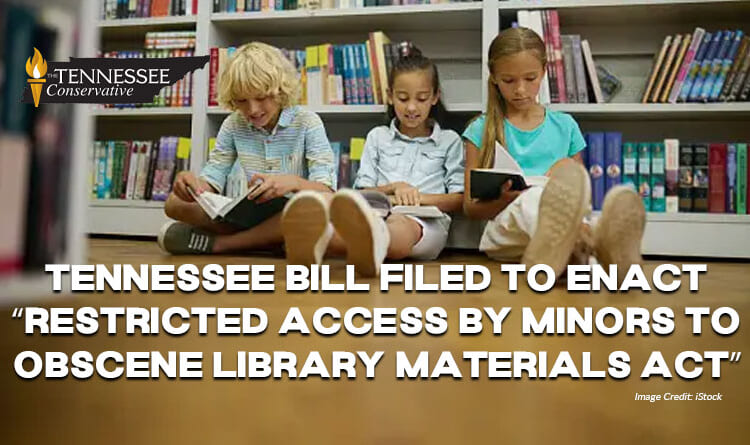Image Credit: iStock
The Tennessee Conservative [By Adelia Kirchner] –
Another piece of legislation regarding age-appropriate materials for minors has been filed by Rep. John Ragan (R-Oak Ridge-District 33).
House Bill 1661 (HB1661) as introduced, would enact the “Restricted Access by Minors to Obscene Library Materials Act” and amend Tennessee Code Annotated Title 10, Chapter 1 and Title 10, Chapter 3 by establishing a petitioning process for obscene library materials.
The bill defines “contemporary community standards” as the “prevailing standards in the adult community as a whole in a district with respect to what is not suitable for display or distribution to, or that is readily accessible by, a minor.”
These standards relate to any book, pamphlet, magazine, movie, photo, drawing, sculpture, video, etc. that is determined to be obscene, harmful to minors, depict excess violence, or to depict nudity.
Note that this bill would apply to public libraries, libraries operated by a local government or housed in a government-owned facility or vehicle, libraries at a public school of higher education, and libraries that fall under a local education agency, charter school, or magnet school.
HB1661 would amend current state law by adding the following:
“Residents of a district may circulate a petition for signatures for the purposes of prohibiting each library within a district from displaying, distributing, or making readily accessible to minors any content or material in possession of a library that is specified in the petition as not meeting contemporary community standards.”
In order for a petition to be valid, HB1661 states that the petition must conform to requirements of the Secretary of State and be signed by legal adult residents of that particular district numbering 2% or more of the total number of legal voters who voted in the last gubernatorial election in that district.
Valid petitions would then be distributed by a district’s county election commission(s) to each library within that jurisdiction.
Those libraries would then be required to “immediately” remove the content specified in the petition from places where that content is readily accessible to or viewable by minors, stop otherwise distributing the content to minors, publish on its website that the content is no longer available to minors, and report these actions to the governing library board, local government, and the Secretary of State.
“Notwithstanding another law to the contrary, the division of public libraries and archives […], a regional library board […], or another library board or governing entity of a library shall not countermand, invalidate, modify, or otherwise seek to bar the application of a petition or the contents of a petition applicable to such library.”
These entities would also be barred from reversing or modifying decisions by a library concerning restricted or repositioned materials for the purposes of protecting minors if those decisions were made in accordance with a valid petition.
If passed by the state legislature, the “Restricted Access by Minors to Obscene Library Materials Act” would take effect on July 1st, 2024.
HB1661 has been assigned to the House Departments & Agencies Subcommittee for review, but a bill hearing has not yet been scheduled.

About the Author: Adelia Kirchner is a Tennessee resident and reporter for the Tennessee Conservative. Currently the host of Subtle Rampage Podcast, she has also worked for the South Dakota State Legislature and interned for Senator Bill Hagerty’s Office in Nashville, Tennessee.
You can reach Adelia at adelia@tennesseeconservativenews.com.












